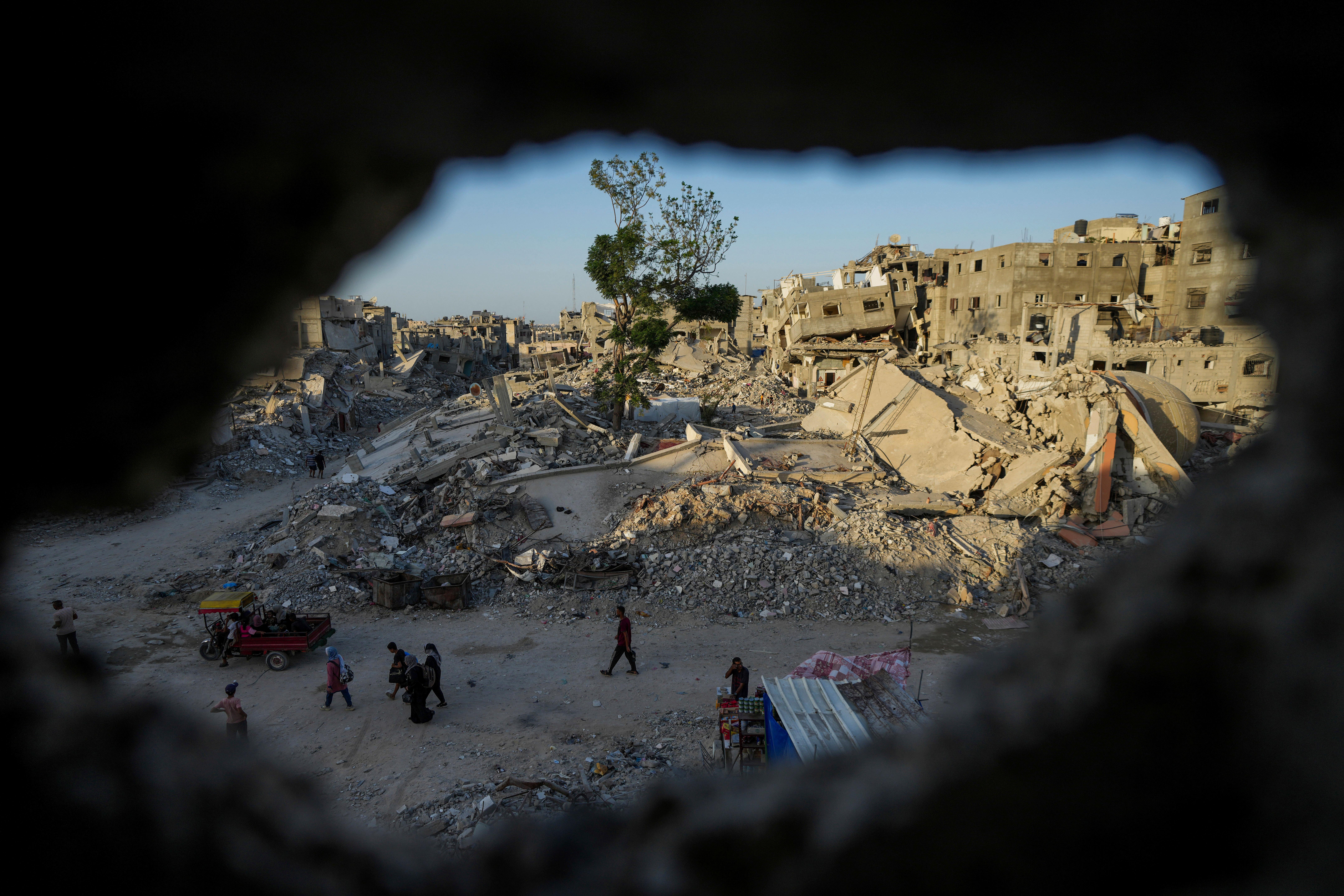Inquiry urged into BBC Gaza coverage over claims it has ‘fuelled slaughter’
The BBC has said it rejects any suggestion its ‘reporting does not convey the true nature of the situation in the Middle East’.

An inquiry has been demanded at Westminster into the BBC’s coverage of the Middle East conflict, amid claims it was biased and had fuelled “more slaughter and hatred”.
The call was made in Parliament by independent crossbencher Baroness Deech after the first anniversary of the October 7 Hamas attack on Israel.
The BBC has said it rejects any suggestion its “reporting does not convey the true nature of the situation in the Middle East” and is dedicated to providing impartial reporting.
The cross-border massacre in Israel, in which hundreds were taken hostage by Hamas militants, unleashed the devastating war in Gaza and has led to an outbreak of hostilities in the wider region.
It is time for an inquiry into the BBC’s impartiality on this issue
It has also triggered large-scale protests in the UK, fanning community tensions.
Incidents of antisemitism and Islamophobia have spiked, according to organisations monitoring such reports.
Responding to a statement on the anniversary of the Hamas attack and continuing crisis in the Middle East, Lady Deech, a former BBC governor and a patron of UK Lawyers for Israel, said the hatred seen in the wake of October 7 “has to some extent been fed by the BBC”.
She said: “There have recently been two independent reports, one of which I co-signed, which pointed out in great detail mistakes and bias on the part of the BBC.
“There have been the most appalling statements on the BBC Arabic World Service by people who hate Israel.
“Does the minister agree that it is time for an inquiry into the BBC’s coverage? For example, Jeremy Bowen casually reported that Israel had bombed a hospital.
The BBC holds itself to high standards of impartial reporting and rejects any suggestion that our reporting does not convey the true nature of the situation in the Middle East, and its past, present and potential impact on people in the region
“This soon turned out to be untrue, but that statement, which he never went back on, gave rise to more slaughter and hatred.
“It is time for an inquiry into the BBC’s impartiality on this issue.”
The BBC has pointed out the report referred to by Lady Deech, relating to the explosion at the al Ahli hospital in Gaza City on October 17, was by its correspondent Jon Donnison, not Mr Bowen.
After a review of the coverage at the time, BBC News posted a statement on their corrections and clarifications page saying Mr Donnison was “wrong to speculate” on the causes of the blast and apologised.
Relying to Lady Deech at Westminster, Lords leader Baroness Smith of Basildon said: “She will understand that I am not going to accede to her request for an inquiry, but I think that all news outlets have a duty and responsibility to the truth.
“One thing I have found difficult in the coverage of this conflict is its focus on the destruction and hurt that have happened.
“I would like to see some balance around the political efforts to reach a solution as well. That would help people to understand what the conflict is about.
“I think that many people watching the TV news are obviously horrified, upset and distraught by what they see, but there is no great understanding of the background to it and why things are happening.
“All news outlets have a duty and a responsibility to ensure that their reporting is accurate.”
A BBC spokesman said: “The BBC holds itself to high standards of impartial reporting and rejects any suggestion that our reporting does not convey the true nature of the situation in the Middle East, and its past, present and potential impact on people in the region.
“This conflict is a challenging and polarising story to cover, and we are dedicated to providing impartial reporting for audiences in the UK and across the world.”
Bookmark popover
Removed from bookmarks